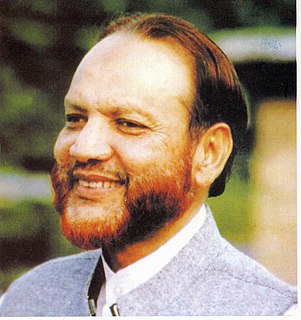A Quote by Pete Townshend
I respect those who follow religious routes only if they seem to me to be morally proper and in accord with the modern world.
Related Quotes
People are in the habit of classifying life’s activities into those which are mundane and those which are religious. Remember, though, only those things done for the sake of Allah are the ‘religious’ things. Everything that is done for other than Allah – however ‘religious’ it may seem – is a worldly act… If he earns thousands of pounds to support his family and to spend for the cause of Allah, seeking only Allah’s pleasure, it is a highly spiritual act.
Fantasy is more than an escape from the truths of the world and the past: it is an open acknowledgment that those truths are complex and morally difficult. It offers a different route to creating something which will resonate with readers, in a way which resists the erasure of privacy and autonomy which pervades our modern world.
We Christians bring peace and grace as a treasure to be offered to the world, but these gifts can bear fruit only when Christians live and work together in harmony. This makes it easier to contribute to building relations of respect and peaceful coexistence with those who belong to other religious traditions, and with non-believers.
I have great love and respect for Russian history and culture. But the world is changing and Russia is too. Russia is part of the modern world, not the world of the past but the modern world. And I believe it has an even greater future than some other countries that can't take care of their young people, of the new generations, of their children, and believe that they can just let things slide.
The lessons of the First Amendment are as urgent in the modern world as the 18th Century when it was written. One timeless lesson is that if citizens are subjected to state-sponsored religious exercises, the State disavows its own duty to guard and respect that sphere of inviolable conscience and belief which is the mark of a free people.




































